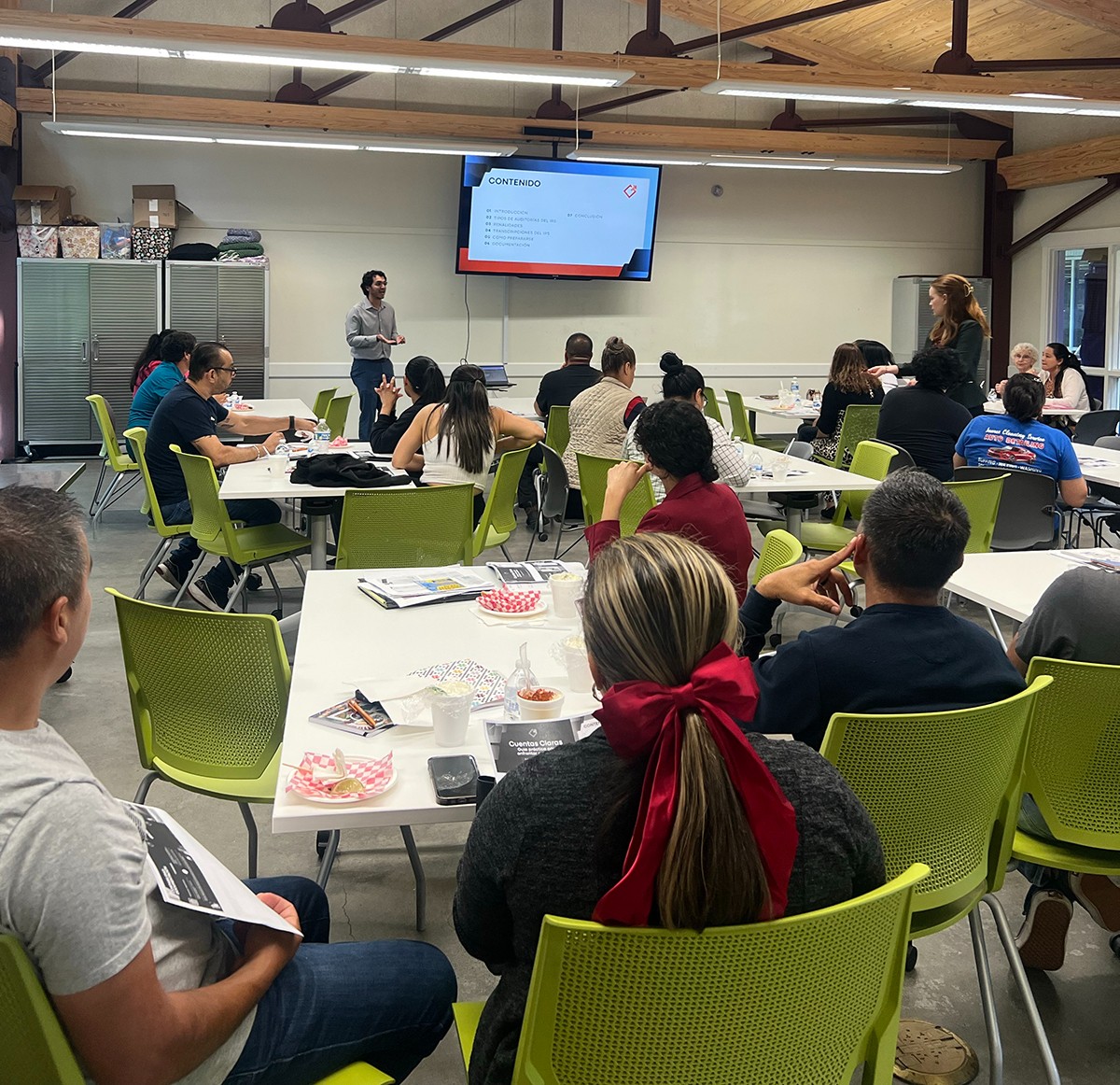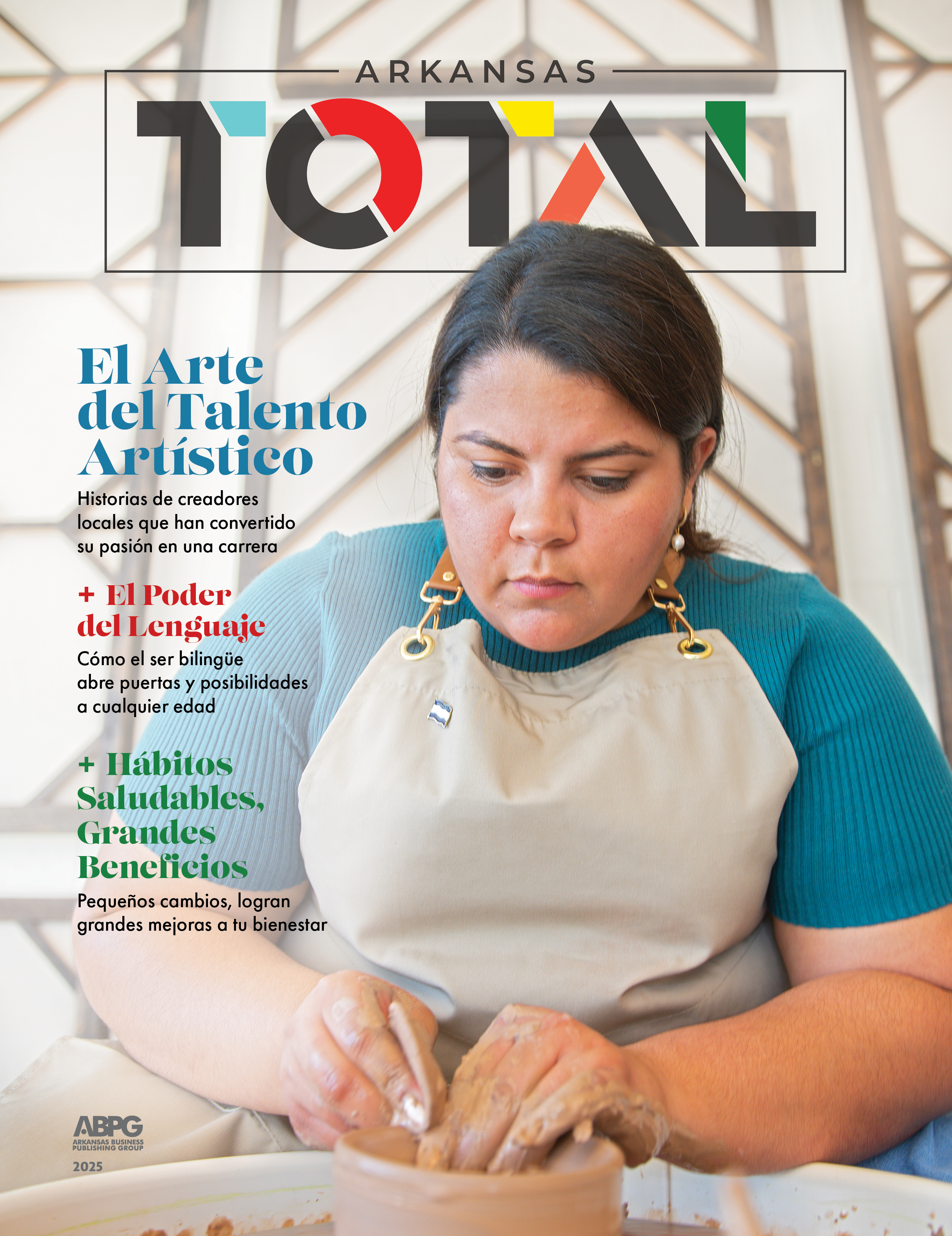Risk Tolerance: Q&A with Gabriel Sandoval Mejía

También puedes leer este artículo en español, Tolerancia al Riesgo: Q&A con Gabriel Sandoval Mejía
Gabriel Sandoval Mejía is a certified public accountant (CPA) based in Springdale. The University of Arkansas graduate shared some best practices for new small business owners.
Tell us about your background.
As a teenager, I helped my father issue invoices for the family business. That’s when I first became interested in studying finance. Throughout college and after graduating, I gained experience working for firms like Cox Accounting Services — from bookkeeping for small businesses to working as a financial auditor for large corporations like Walmart and Tyson. … I opened my own accounting firm in Springdale, Arkansas.
How can an accountant help a small business owner get started?
Accounting is like a foreign language — full of terms only a trained professional can interpret correctly. By hiring the right person, you gain confidence that your financial and tax matters will be handled properly, which gives your business a solid foundation.
What mistakes can small businesses make when they don’t have professional accounting support?
- They don’t know what steps to take to set up their legal entity (oftentimes an LLC or Inc.).
- They aren’t sure how to choose the right legal entity, along with the requirements from a tax perspective.
- A frequent mistake is mixing personal and business expenses, which causes major financial problems. This is referred to as commingling and it poses tax risks and legal risks.

What are some basic accounting practices every small business owner should follow?
Keep business and personal accounts separate. Avoid commingling of funds at all costs.
- Make it a habit to organize receipts weekly by expense type and vendor. This will make accounting and tax preparation easy.
- Don’t be afraid to ask your accountant questions — that’s what they’re there for.
- Before signing any documents, be sure you understand them fully. If not, ask before signing.
- Open a business bank account under your registered business name for exclusive business use.
Financial experts recommend keeping all documents related to your business for six years.
If you use a personal vehicle for business, track your mileage in a mileage log.
What risks could a business face if its accounting and taxes are not properly managed?
- Fines and penalties
- Audits
- Seizure of personal property
- Legal and liability risk
How can an accountant help a small business grow and comply with IRS regulations?
Based on the business’ financials, an accountant can help owners make informed decisions that support business growth. This includes preparing financial reports for credit applications and filing tax returns accurately.
How can a CPA help a business prepare for a potential audit?
A CPA can represent the client, help gather the required documents and guide them through the process — potentially reducing penalties for non-compliance.
What should a small business consider when choosing a CPA?
Not all accountants specialize in every industry; that’s why it’s important to hire someone who understands your business type. You should also feel that your accountant communicates clearly and understands your financial goals.
How important is it for Spanish-speaking entrepreneurs to have a bilingual accountant?
Being able to communicate with your accountant in your native language is very important — especially when signing legal or financial documents.
What advice would you give to Latino entrepreneurs who are just starting out?
Have at least six months’ worth of personal savings to cover your expenses while your business gets off the ground.
The U.S. Internal Revenue Service (IRS) offers free online resources for taxpayers and information in Spanish through its official website.

